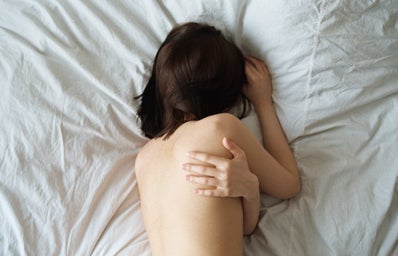Nudity in entertainment has seen its fluctuations, from its height in the 1970s and 80s in films, to it becoming normalized now in both film and television. Being an obscene topic, some see nudity in entertainment as an art form or an increased portrayal of realness, while others have their reasonable objections. Yet, despite how one might feel about it, filmmakers will continue to use on-screen nudity. What the filmmakers do with the responsibility should be the subject of criticism, especially since statistically women’s nudity is more likely to be shown than men’s. This disparity not only increases female hypersexualization, but also strengthens female’s self objectification. However, after the Me-Too movement, actresses have become more comfortable speaking up about doing nudity in front of a camera. Some even advocate for equal-opportunity nudity.
From 2007-2012, in the top 500 critically acclaimed films, 30% of speaking characters are women, and 26.2% of them get partially nude. While men hold a larger percentage of speaking characters, only 9.4% of men get partially nude in those films. For the top 100 films in 2018 in the U.S., the percentage of partially nude/fully nude women increased by 27.3%, while for men decreased to 8.5%. Still, the Me-Too movement changed a lot of things for how women are now treated on set and on-screen. In the documentary, Body Parts, director Kristy Guevara-Flanagan explained how there are stricter rules over how nudity is shot, with the rising use of intimacy coordinators and tighter nudity clauses in actors’ contracts.
Still, nudity still seems to have a presence, especially on television, and still seems to be making headlines. Emilia Clarke, past actress in Game of Thrones, and Sydney Sweeney, actress in Euphoria, have both been vocal about speaking up on set to their directors when the amount of nudity wanted from them became too much. Clarke has recounted multiple times about wanting to stay clothed and the criticism that she was met with. In a 2021 interview Clarke said, “I’ve had fights on set before where I’m like, ‘No, the sheet stays up,’ and they’re like, ‘You don’t wanna disappoint your Game of Thrones fans.’” Clarke expresses that after she kept being asked about the nudity she did in the show in interviews, she was “Sick and tired of it because [she] did it for the character – [she] didn’t do it so some guy could check out [her] tits, for god’s sake.”
Sweeney had a similar experience after her character went nude for scenes. Sweeney said in a 2022 interview that she sees people recognizing her hard work in The White Lotus, but she’s particularly proud of her performance in Euphoria, which critics don’t take much notice of. After getting nude on Euphoria, Sydney expresses how it diminished her acting work on the show. She states in the same interview, “this is something that has bothered [her] for a while. [She’s] very proud of [her] work in Euphoria. [She] thought it was a great performance. But no one talks about it because [she] got naked.”
Sweeney also details how she has experienced good and bad environments on sets when it came to getting nude on camera. For Euphoria, there were times when she had to tell the director that she thought nudity wasn’t necessary for certain scenes and she was met with agreement. Another environment made her “feel disgusting” and, according to Sweeney, “want to go home and scrub myself completely raw.” She continues recounting the experience saying: “I didn’t feel comfortable with my cast mate or the crew, and I just didn’t feel like my character would be doing it…I didn’t feel like I was able to speak up.”
Emmy Rossum, a past actress on Shameless, has asserted her take on on-screen nudity on The Kelly Clarkson Show and during The Hollywood Reporter’s Comedy Actress Roundtable. Rossum advocates for equal-opportunity nudity and that’s what she says was done on her past show. In a 2014 interview, Rossum said: “What I love is that we’re an equal opportunity nudity station…men, women, penises, vaginas.” During the roundtable conversation, she expands on her thoughts about nudity in TV and says: “I think we should be equal opportunity P and D.” She continues saying: “For me, I am OK to be as naked as you want me to be, within reason, if it applies to the story. If it serves the character.”
As a viewer, I can say that with any film or TV show that I see with nudity, there is an obvious disparity with what is shown of women compared to men. Even though actresses have stated that they like to show nudity for a purpose to the character or storyline, I have seen instances where none is needed but is shown in the scene, such as a female character being topless while having a conversation with a male character who is clothed. It seems to me as a show carries on and continues to use nudity, the director can get casual about showing nudity. This is especially true with women because, societally, they are considered to have more explicit nudity to show compared to men. Even if the director wants to go for a more realistic feel, as Rossum states, have nudity be equal and not just on the woman’s part.
In today’s television and film, we see a post-Me-Too movement change with on-screen nudity. As more actresses become comfortable with speaking up about what and when they want to show nudity, the disparity between women’s nudity and men will hopefully shrink. Whether the solution is to have women show less nudity on screen or men show more, the percentage of women nude on screen should never be triple that of a man.


